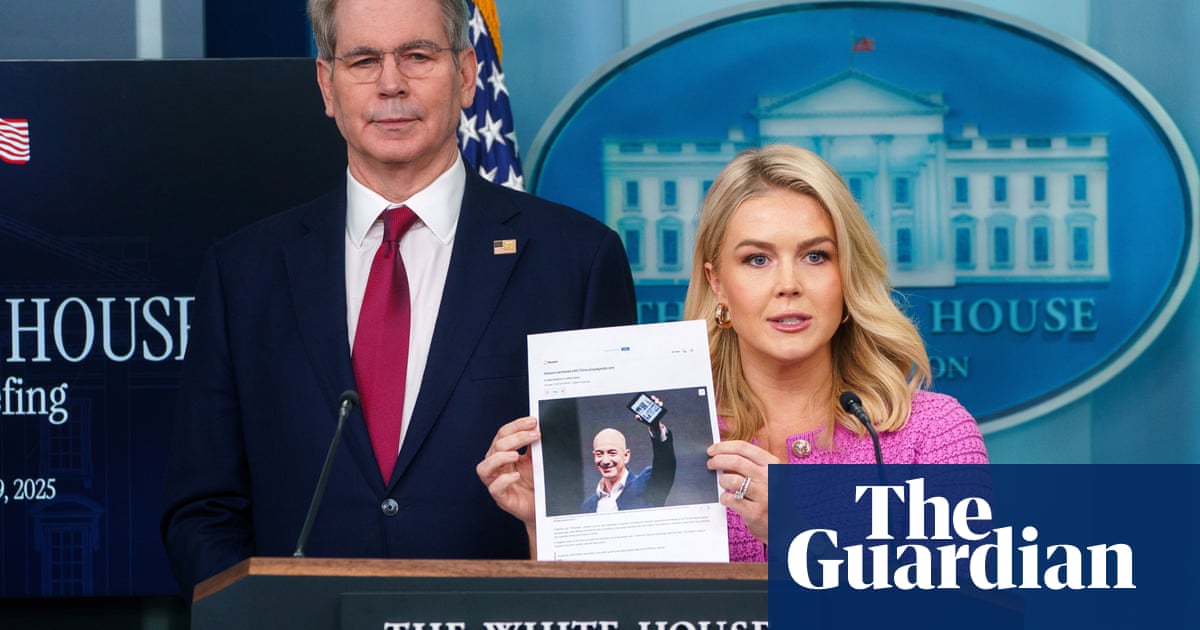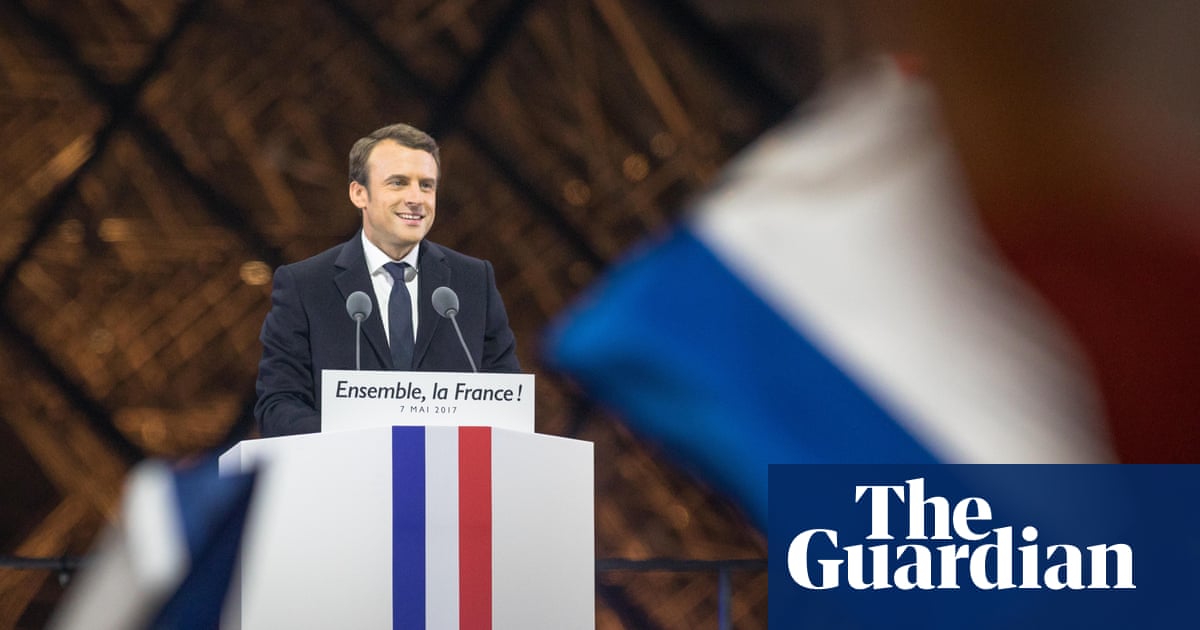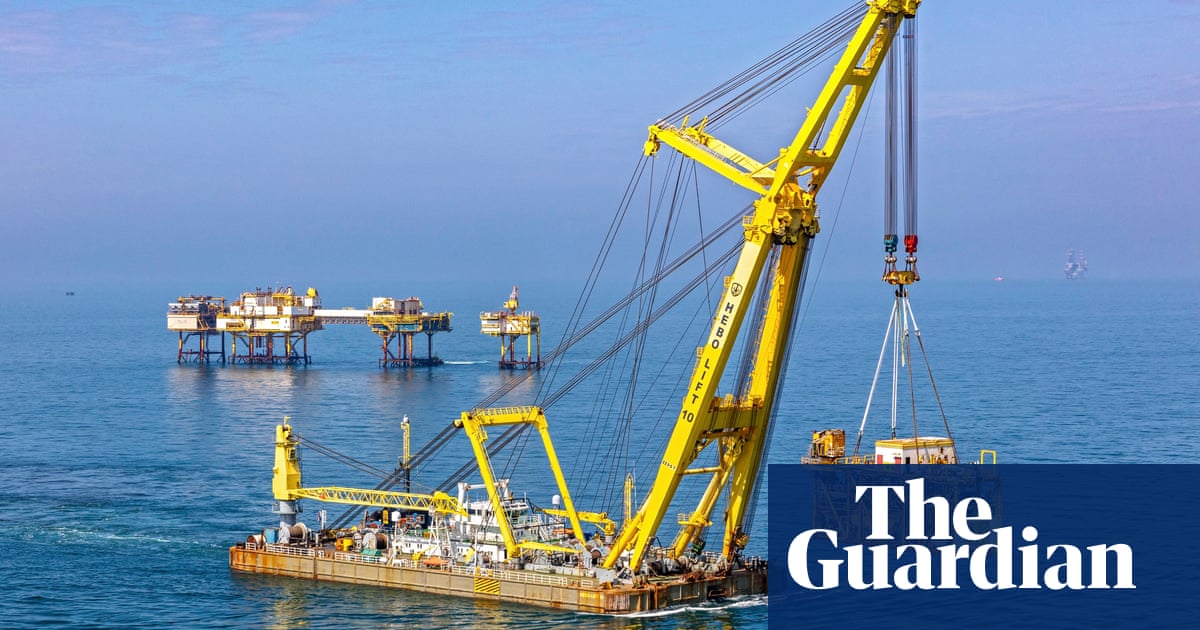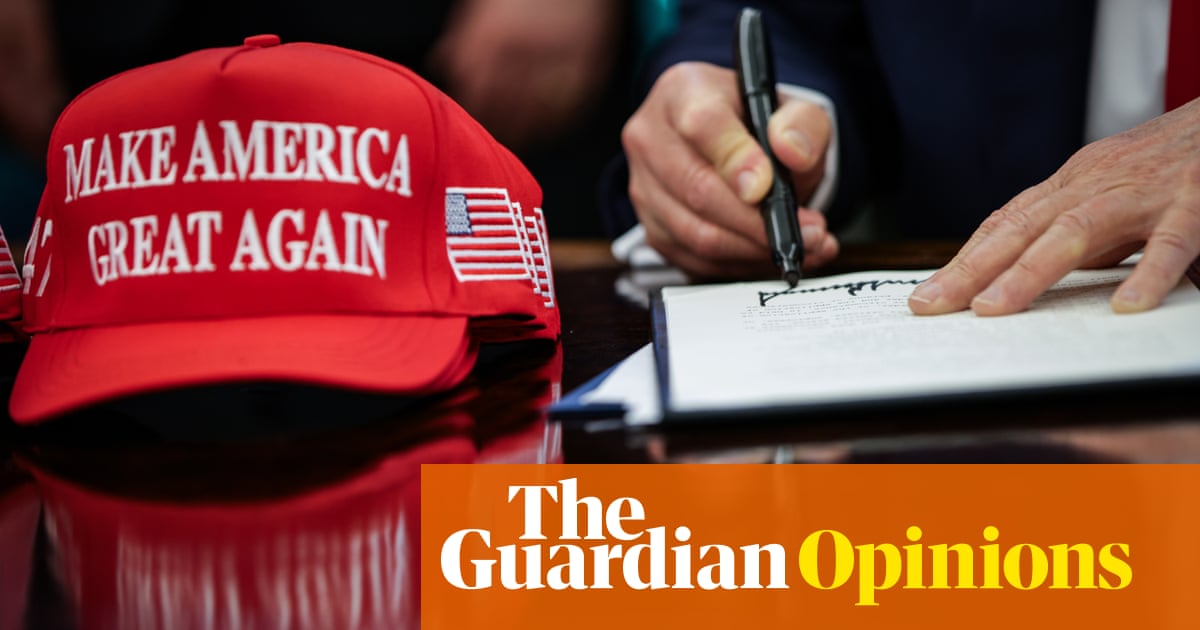White House accuses Amazon of 'hostile and political' act for showing tariff costs
The Trump White House is furious with Amazon over reports that it plans to display the cost of tariffs on items it sells.
Press secretary Karoline Leavitt has just given the company both barrels, at her briefing with the media today.
Leavitt claims the move is “a hostile and political act by Amazon”, and asks why Amazon didn’t take a similar step when inflation hit 40-year highs under the Biden administration.
She also adds that it’s “not a surprise”, citing a report (from 2021) that Amazon partnered with a Chinese propaganda arm.
Leavitt argues:
So this is another reason why Americans should buy American. It’s another reason why we are onshoring critical supply chains here at home, to shore up our own critical supply chain and boost our own manufacturing.
Q: Is Jeff Bezos still a Trump supporter?
Leavitt declines to comment on the president’s relationships with Jeff Bezos, but reiterates that “this is certainly a hostile and political action by Amazon”.
Key events Show key events only Please turn on JavaScript to use this feature
It’s not hard to understand why the White House is cross with Amazon.
Donald Trump has repeatedly claimed that the tariffs he imposes on imports are paid by other countries, despite economists pointing out that actually US businesses – and ultimately consumers – stump up the money when goods arrive.
If consumers are seeing a ‘tariff cost’ on their Amazon orders, they might realise how the system works.
Gavin Baker, CIO of investment firm Atreides Management, suggests other companies may adopt the same plan too:
Almost every retailer will follow Amazon and itemize the “tariff costs” anywhere a price is shown - on websites, price tags and receipts. Everywhere.
It is not political - it is just corporations protecting their own brands and acting in their own competitive best interests.…
Analyst: White House is targeting US companies who question their moves
The White House’s attack on Amazon is a “significant” move which could alarm the financial markets, says Kathleen Brooks, research director at XTB.
She writes that it’s a sign that the US administration is targeting comapnies who disagree with them – that means an increase in political risk.
Brooks explains:
The US administration has changed its tone towards tariffs yet again on Tuesday. The White House Press secretary and the Treasury Secretary accused Amazon of a ‘hostile political act’, after Amazon planned to expose the cost of tariffs to its consumers. This comes days before Amazon reports earnings on Thursday, and its stock price fell ahead of the US open and is down more than 2% so far.
The US administration has mostly saved its ire for other countries that it believes gives the US a raw deal in global trade. Now it appears that the US administration is targeting US companies who question the logic of its moves. This is significant. Financial markets have been roiled by political interference in the global economy in recent weeks. Investors do not digest political risks well, so if the Trump administration is now publicly accusing US companies of hostile acts if they disagree with the President’s US economic policy then this could stop the recent recovery rally in risky assets.
Political analyst Ian Bremmer isn’t convinced by the White House’s argument against Amazon.
He suggests telling a customer the cost of tariffs on their goods is no different than flagging the sales tax on a receipt:
white house: report that amazon to publish cost of tariffs a “hostile and political act.”
how is this different from writing sales tax on the receipt?
Capital Economics: Pre-tariff import boom points to sizeable Q1 GDP contraction
Blimey. The surge of imports into the US last month are a sign that America’s economy probably contracted at the start of this year, consultancy Capital Economics suggest.
Paul Ashworth, their chief North America economist, explains:
The advance economic indicators revealed a massive surge in consumer goods imports in March, as firms raced to beat the imposition of reciprocal tariffs in early April.
As a result, we now estimate that Q1 GDP contracted at a 2.0% annualised pace, down from our most recent estimate of a 0.1% gain.
We’re expecting the first estimate of US GDP for the last quarter to be released tomorrow…..
Shares in Amazon have dropped 1.3% at the start of trading, after the White House accused it of a ‘hostile’ act for showing consumers the cost of tariffs….
White House accuses Amazon of 'hostile and political' act for showing tariff costs
The Trump White House is furious with Amazon over reports that it plans to display the cost of tariffs on items it sells.
Press secretary Karoline Leavitt has just given the company both barrels, at her briefing with the media today.
Leavitt claims the move is “a hostile and political act by Amazon”, and asks why Amazon didn’t take a similar step when inflation hit 40-year highs under the Biden administration.
She also adds that it’s “not a surprise”, citing a report (from 2021) that Amazon partnered with a Chinese propaganda arm.
Leavitt argues:
So this is another reason why Americans should buy American. It’s another reason why we are onshoring critical supply chains here at home, to shore up our own critical supply chain and boost our own manufacturing.
Q: Is Jeff Bezos still a Trump supporter?
Leavitt declines to comment on the president’s relationships with Jeff Bezos, but reiterates that “this is certainly a hostile and political action by Amazon”.
Bessent: We are very close in talks with India
America’s Asian trading partners and allies have been “the most forthcoming” in terms of doing trade deals, Treasury secretary Scott Bessent says.
He adds that vice-president Vance made some very good progress during his trip to India last week, and that the contours of a deal with South Korea are coming together.
Bessent then gives some “inside baseball” know-how in India, saying they are easier to negotiate with than many other countries because they have many very high tariffs.
So it’s much easier to confront the direct tariffs…than the non-tariff trade barriers which can be much more insidious and also harder to detect.
So a country like India, which has the posted and ready tariffs, it’s much easier to negotiate with them. So I think the India negotiations are moving well.
Bessent not worried about supply chain shocks
In what may prove a hostage to fortune, Treasury secretary Scott Bessent says he doesn’t expect supply chain shocks due to the slowdown in shipments from China.
Bessent says retailers have managed their inventory in front of this, explaining to the press pack:
I speak to dozens of companies, sometimes daily, but definitely weekly.
They know that President Trump is committed to fair trade and have planned accordingly.
Bessent: "I wouldn't think that we would have supply chain shocks. I think retailers have managed their inventory in front of this...They know that President Trump is committed to fair trade and have planned accordingly." pic.twitter.com/FA6ZcneExY
— The Bulwark (@BulwarkOnline) April 29, 2025Scott Bessent is then asked why Donald Trump has decided to cushion the impact of his tariffs on US carmakers by easing some duties on foreign vehicle parts.
The Treasury Secretary explains that Trump is committed to bringing back auto production to the US, so his administration wants to give automakers a path to do that “quickly, efficiently and create as many jobs as possible”.
Bessent: Tariffs are unsustainable for China
Over at the White House, Treasury secretary Scott Bessent is facing the press, and taking questions about the trade war.
Quizzed about the situation with Beijing, Bessent argues that the Chinese tariffs are “unsustainable for China”, and could cost million of jobs very quickly [he may be citing a Goldman Sachs prediction that 16 million jobs are at risk].
Bessent says:
Remember that we are the deficit country.
They [China] sell almost five times more goods to us than we sell to them. So the onus will be on them to the take off these tariffs. They’re unsustainable for them.
Bessent is also asked who the Trump administration is talking to Beijing specifically about tariffs, but he says he won’t talk about who’s talking to whom – joking that his role doesn’t include running the White House switchboard.
Some snap reaction to the jump in the US trade deficit last month:
TRADE TENSIONS - by the data.
The US trade deficit widened to a record $162 billion, exceeding all estimates in a Bloomberg survey of economists. Consumer goods imports rose >27%.
"That's a crazy number," says @mckonomy

 4 hours ago
9
4 hours ago
9













































